The application that I'm making loads 3 JSON files in order to get information about a game's characters, spell and more. Currently I have 3 functions that use axios to make GET requests and then store the responses, however, I'm wondering if I'm slowing my load time because frankly I'm not sure if these JSON files are loaded simultaneously or one after another. Each file takes about 45 ms to load so if they're being loaded one after another, I'm looking at around 135 ms load time and I'm not liking it.
Currently I've tried 2 ways but frankly I don't see a difference in the loading time in chrome's network tab. If you're wondering, the functions are located in my Vue.js Vuex store and the calls are executed in App.vue mounted hook.
The first way uses 3 separate functions and each makes its own GET request. Then these functions are called one after another.
The call:
this.$store.dispatch('getChampions')
this.$store.dispatch('getSummonerSpells')
this.$store.dispatch('getSummonerRunes')
The functions:
getChampions({commit, state}){
axios.get("https://ddragon.leagueoflegends.com/cdn/9.14.1/data/en_US/champion.json")
.then((response) => {
commit('champions', {
champions: response.data.data
})
})
.catch(function (error) {
console.log(error);
})
},
getSummonerSpells({commit, state}){
axios.get("http://ddragon.leagueoflegends.com/cdn/9.14.1/data/en_US/summoner.json")
.then((response) => {
commit('summonerSpells', {
summonerSpells: response.data.data
})
})
.catch(function (error) {
console.log(error);
})
},
getSummonerRunes({commit, state}){
axios.get("https://ddragon.leagueoflegends.com/cdn/9.14.1/data/en_US/runesReforged.json")
.then((response) => {
commit('summonerRunes', {
summonerRunes: response.data
})
})
.catch(function (error) {
console.log(error);
})
}
And using the second way, I have 1 function like this:
The call:
this.$store.dispatch('getRequirements')
The function:
getRequirements({commit, state}){
axios.all([
axios.get('https://ddragon.leagueoflegends.com/cdn/9.14.1/data/en_US/champion.json'),
axios.get('http://ddragon.leagueoflegends.com/cdn/9.14.1/data/en_US/summoner.json'),
axios.get('https://ddragon.leagueoflegends.com/cdn/9.14.1/data/en_US/runesReforged.json')
])
.then(axios.spread((response1, response2, response3) => {
commit('champions', {
champions: response1.data.data
})
commit('summonerSpells', {
summonerSpells: response2.data.data
})
commit('summonerRunes', {
summonerRunes: response3.data
})
}))
}
